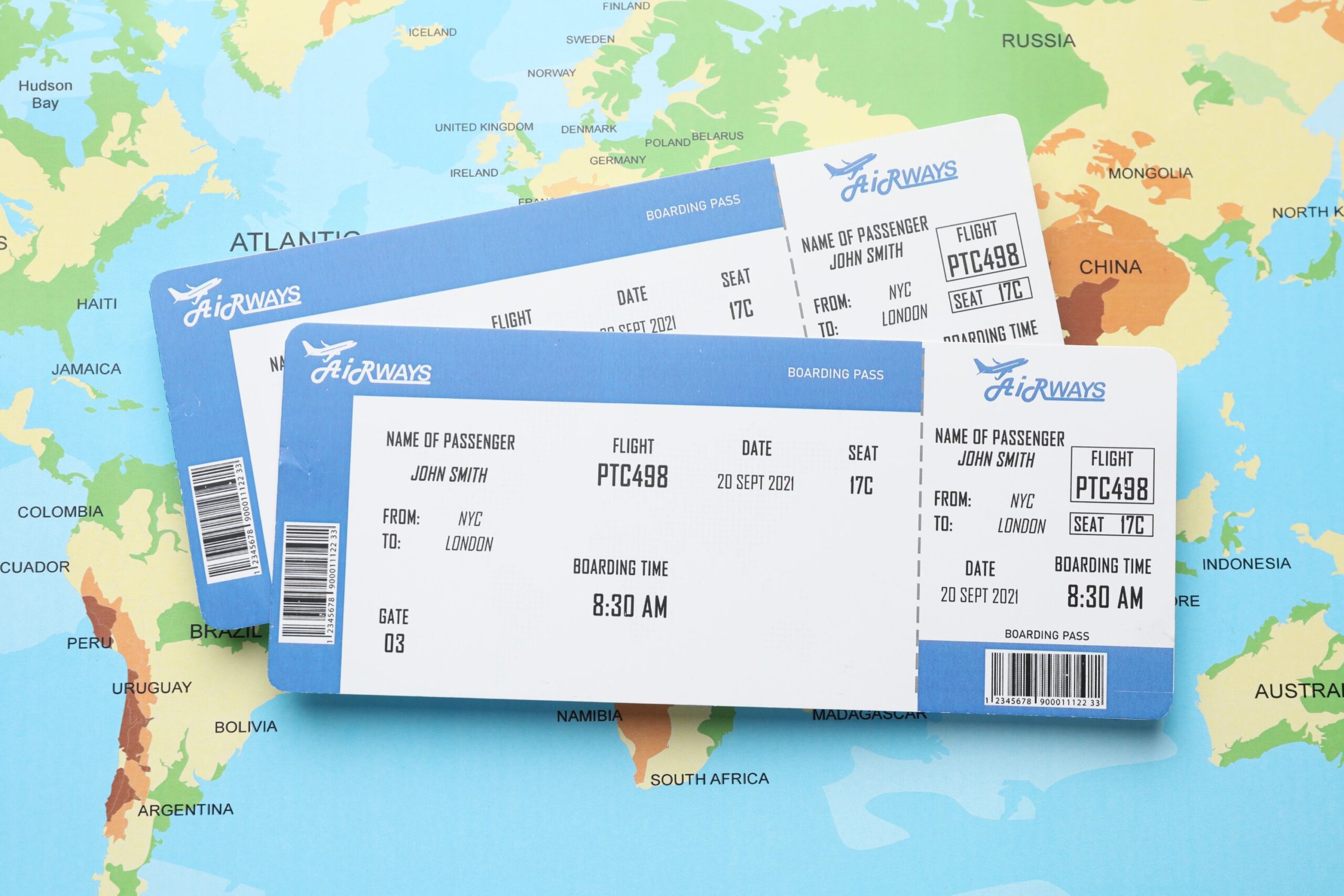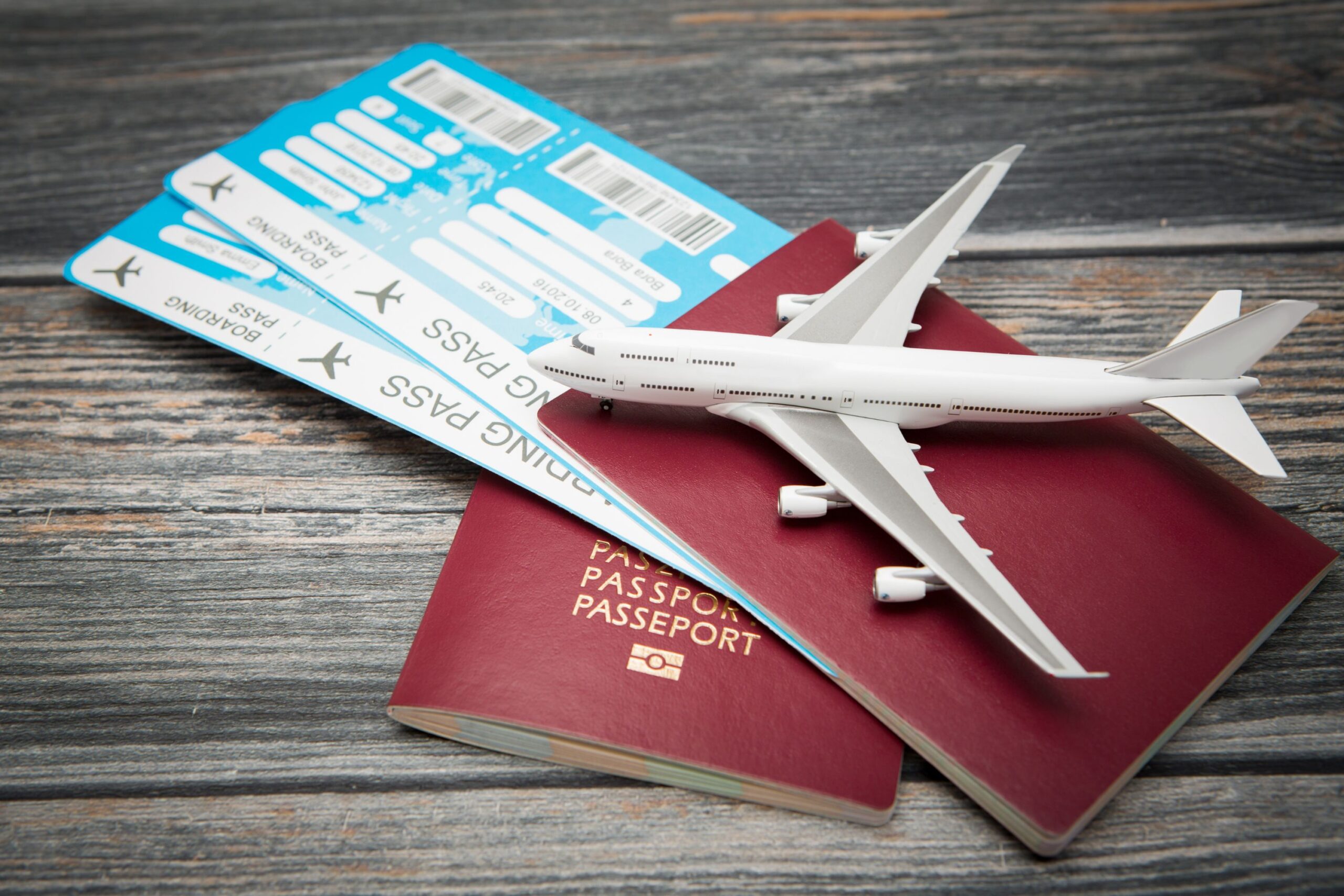Flying to Germany without breaking the bank starts with timing. If you’re looking to score the lowest ticket prices, you’ll find winter months and specific shoulder-season windows that are especially wallet-friendly. By planning your trip around periods of lower demand, you’ll see fares dip noticeably compared to the busy summer and holiday stretches.
Why Winter Brings Lower Airfares
January through early March often delivers the cheapest tickets of the year.
After the holiday crowds disperse, airlines slash prices to fill planes during this lull. If you book a trip for mid-February, for example, you could see round-trip fares drop by up to 30% compared with July departures.
Remember to pack warmly—and maybe book flexible change policies, since winter weather can still affect schedules.
Shoulder Seasons: A Sweet Spot for Savers
Late April to early June and September into October present another opportunity for cheap flights to Germany. You’ll miss the peak tourist surge yet enjoy mild weather and longer daylight hours.
During these windows, bookings made about two months ahead often yield the best savings.
If you’re flexible, aim for mid-week departures here, as they tend to undercut weekend ticket prices by a handful of euros.
Red-Eye and Midweek Savings
The bargains get even better if you’re open to early-morning or late-night flights. Red-eye itineraries—departing after 10 p.m.—usually go unnoticed by leisure travelers, so airlines discount them to boost sales.
Flying on a Tuesday or Wednesday rather than a Friday can shave off another 10–15% of your fare.
What you trade is sleep in the cabin; what you gain is more spending money for German beer gardens or museum tickets.
Booking Window: When to Reserve for the Best Deal
Apart from seasonality, the moment you hit “purchase” makes a big difference. For travel within Europe, securing your flight about six to eight weeks before departure often nets the lowest prices.
For intercontinental flights, aim for two to three months out. If you wait until the last month, expect a premium—airlines know last-minute planners will pay more rather than risk missing their trip.
Low-Cost Carriers Versus Full-Service Airlines
Choosing between budget airlines like Ryanair or easyJet and full-service carriers like Lufthansa can affect your bottom line.
Low-cost carriers often offer flash sales that undercut major airlines, but add-ons like seat selection and baggage fees can offset initial savings. When comparing total cost, factor in all extras.
Sometimes, a slightly higher base fare on a full-service flight is cheaper once you add carry-on and checked baggage fees.
Regional Airports: A Hidden Route to Savings
Don’t limit your search to big hubs like Frankfurt or Munich. Airports in Düsseldorf, Berlin Brandenburg, or even Leipzig can offer lower-cost tickets.
You might need a train transfer after you land, but Germany’s rail network is efficient and comfortable.
In some cases, the fare difference between two airports covers the cost of a rail ticket, leaving you with extra euros in your pocket.
How Holidays and Events Affect Prices
Busy travel dates around Christmas/New Year and Oktoberfest drive fares sky-high. Book as early as six months ahead if you must travel during these special periods. Otherwise, you’ll face steep price tags.
For the Oktoberfest season in late September, consider arriving a week before the festival to avoid peak-pricing days and then sticking around town for cheaper lodging and flights after the grand opening.
Tips to Monitor and Lock in Deals
Use fare-alert tools to track price drops for your exact route. Lock it in immediately when you see a significant dip, around 10% below average.
Flexible-date search calendars on booking platforms highlight the cheapest day to fly within a given month.
You can set alerts for your preferred departure and return windows, so you’ll get notified the moment fares fall.
Smart Booking Hacks That Work
Knowing the cheapest time to fly to Germany is only half the battle. The other half? Booking smart. If you’re serious about saving, pay close attention to booking trends, airline sales cycles, and the fine print of ticket offers.
You can set reminders to check prices regularly, especially mid-week, when airlines often release fare updates.
One strategy that works surprisingly well is searching for flights in incognito or private browser mode. This can help you avoid dynamic pricing, where airlines raise prices after seeing you check the same route multiple times.
Another tip? Use multi-city or open-jaw searches. Instead of flying round-trip to and from Frankfurt, you might land in Berlin and fly home from Munich. This flexibility sometimes leads to savings of over €100.
The Best Booking Days (And Why They Matter)
Data from major booking engines suggests that booking flights on Tuesdays and Wednesdays often results in lower fares.
Why? Airlines release seat inventory early in the week and adjust prices based on demand. So, when you check mid-week, you’ll likely catch a deal before it’s gone.
Also, consider flying out on a weekday. Tuesdays and Wednesdays are typically the cheapest departure days, especially for international flights to Germany.
In contrast, Friday and Sunday departures are pricier due to higher leisure and business demand.
Real Example: Comparing Dates
Let’s say you want to fly from New York to Berlin. Booking a Tuesday flight in mid-March might show a round-trip fare of $520.
But change that to a Friday in late June, and the same route could climb to $860. That’s nearly $350 saved—just by adjusting the travel date.
How Airline Loyalty Can Cut Costs
If you fly frequently, joining an airline’s frequent flyer program might be one of the smartest moves. For instance, Lufthansa’s Miles & More program lets you earn points on every flight, which can be redeemed for discounted or even free tickets.
Over time, you’ll also gain access to priority boarding and checked luggage benefits, which can reduce the total cost of travel.
Even if you’re not a frequent flyer, credit cards tied to airline programs often come with bonus miles for signing up. If you plan a trip to Germany and can cover most of the fare with miles, you’ve just created your cheapest flight time.
When Is the Cheapest Time to Fly to Germany from the US?
The off-season sweet spot from the US typically runs from mid-January to mid-March and again in November (excluding Thanksgiving week).
Flights during this time are less competitive, and you’ll often find significant price drops, especially for departures from major airports like JFK, Boston, or Chicago.
If you’re flying from the West Coast, look for flights with layovers in cities like London, Dublin, or Amsterdam.
These connections can reduce the total fare by a few hundred dollars, without adding more than a few hours to your itinerary.
Avoiding Peak Prices: Summer and Christmas
Summer is the most expensive time to fly to Germany. From late June to early September, planes fill up quickly with families, students, and leisure travelers.
That demand drives fares up across the board. If you must travel in summer, try to fly during the first two weeks of June or wait until late August. These edge periods offer slightly better pricing than July’s peak.
The Christmas season is another time to avoid if you’re hunting for a cheap deal. Prices spike around December 20th until after New Year’s Day.
You’ll pay less if you depart earlier in the month or push your trip into mid-January instead.
Use Airline Sales to Your Advantage
Major airlines occasionally launch limited-time sales on international flights. These often happen in January, April, and late August. If you’re subscribed to airline newsletters or flight deal websites, you’ll be the first to know when these promotions go live.
Booking during a sale could cut your fare to Germany by as much as 40%.
But there’s a catch: sale fares often come with restrictions. They may be non-refundable, have strict change policies, or require mid-week travel. Always read the fine print before clicking “book.”
Hidden Costs That Can Ruin a Cheap Fare
Finding the cheapest time to fly to Germany is only worth it if you aren’t surprised by extra charges later. Some low fares look tempting initially, but quickly climb after you factor in seat selection, baggage, and payment processing fees.
If you’re booking with a budget airline, always check what’s included in the price.
For example, a €60 flight from London to Berlin with a low-cost carrier may sound great. But if you add a carry-on bag (€25), reserve a seat (€15), and pay via credit card (€5), you’re suddenly looking at a total of €105—almost double the base fare.
You can compare the final checkout price, not just the headline number, to see what you’re paying.
How to Avoid Baggage Fees
Packaging light is key if you’re flying to Germany for a short trip. Many airlines now allow only a small personal item for free, especially on basic economy tickets.
To avoid paying extra, choose a compact backpack or under-seat bag and wear your bulkiest items—like a jacket or boots—on the plane.
When traveling longer and needing a checked bag, look for fares that include it by default. Lufthansa and other full-service airlines sometimes offer bundled fares where the bag is included, and the overall price is cheaper than adding one à la carte on a budget flight.
Choosing the Right Booking Platform
Not all booking sites show the same prices or flight options. Large aggregators like Google Flights and Skyscanner help you compare fares across multiple airlines and booking platforms.
But here’s the catch: sometimes third-party sites offer cheaper prices than the airline, but with stricter change or refund rules.
If unsure, book directly through the airline for better customer service. If something goes wrong, you’ll often get better flight change flexibility and faster resolution.
However, if you’re 100% set on your travel dates, third-party sites can be a solid way to lock in the lowest fare.
Germany’s Airport Choices Matter More Than You Think
Picking the right airport can impact your cost. While Frankfurt is the largest hub, it’s often more expensive to fly into than Berlin Brandenburg or Hamburg. If your destination is flexible, consider flying into a secondary airport and taking a train there.
Germany’s rail system is reliable and well-connected. For instance, if you land in Düsseldorf but want to visit Cologne, you can take a high-speed train and be there in under an hour.
This means you can mix and match cities and airports to find the best ticket price and reach your destination quickly.
Example: Comparing Frankfurt vs. Nuremberg
Let’s say you find a flight to Frankfurt for $780, but the same airline offers a fare to Nuremberg for $610. Adding a €30 train ride to Frankfurt still keeps you below the original cost, allowing you to explore another city.
Flight Alerts and Price Trackers: Set and Forget
It’s easy to miss a great deal if you’re not constantly watching. Tools like Hopper, Kayak, and Skyscanner offer fare alerts that let you track routes and be notified when prices drop.
Set an alert for flights to Germany from your preferred airport, and check in regularly for changes.
If you plan well, you’ll see how prices rise and fall over time. This will help you recognize when it’s the right moment to book—and stop you from second-guessing once you’ve locked it in.
Why Booking Early Still Matters
Even if you find the cheapest time to fly to Germany, you must book early. Waiting until the last minute may work for ultra-flexible travelers, but it’s risky for most people.
Flights during shoulder seasons and holidays tend to fill up quickly, especially if you’re flying from busy hubs.
The earlier you book, the more seats you’ll have to choose from—usually at a better price. For example, if you’re flying in April or September, you’ll want to lock in your flight about 8–10 weeks in advance for the best shot at low fares.
Overlooked Travel Periods That Offer Real Value
There’s a sweet spot that many travelers miss: the second half of October and the first two weeks of November. Once Oktoberfest ends and before the Christmas markets begin, demand drops. Fewer tourists mean more availability—and cheaper fares.
If you’re flexible with your plans, this is a fantastic time to explore Germany for less.
Spring also has its underrated gems. While May gets attention for its blooming countryside, early April is less busy and often cheaper. You’ll still get mild weather, especially in the southern parts like Bavaria, and prices haven’t surged yet.
If you’re traveling for sightseeing rather than festivals, these windows offer a chance to enjoy major cities like Berlin or Hamburg without large crowds and peak pricing.
How Weather Affects Flight Prices to Germany
The weather in Germany shifts dramatically with the seasons, impacting airfare.
Summer, of course, comes with higher prices. But the truth is, not every traveler needs sunshine and long days. If you’re coming for museums, shopping, or culinary experiences, winter works just fine—and saves you money.
January and February, for example, are the coldest months.
But if you don’t mind bundling up, this is the cheapest time to fly to Germany. Airfare drops, hotels cost less, and tourist site lines are minimal.
You won’t get the beer gardens, but you will get a better seat on the plane and more room in the museums.
If weather is crucial to you, but you’re also price-conscious, consider the shoulder seasons. These months offer moderate temperatures, decent daylight hours, and much better fares than high season.
Holiday Periods to Be Cautious With
There’s always a spike in airfare around holidays, and Germany has more than you might expect. Besides global peaks like Christmas and New Year’s, Germany has several regional public holidays in May and June that push up demand.
Ascension Day, Pentecost, and Corpus Christi may not be widely celebrated where you live, but they lead to long weekends and increased domestic travel in Germany. That, in turn, affects flight prices.
When looking for the cheapest time to fly to Germany, avoid these periods—even if they’re not holidays in your country.
Travel Tip: Use Regional Celebrations to Your Advantage
If you’re set on traveling during a German holiday, try flying into a city where the holiday isn’t observed. For instance, Berlin doesn’t celebrate Corpus Christi, while Cologne does.
A flight to Berlin around that time might cost less simply because demand is lower there.
Building a Smart Seasonal Itinerary
Choosing the cheapest time to fly is only part of planning. You also want to ensure the season matches what you want to do in Germany. If you dream of snowy castles and winter markets, December flights will cost more, but the experience justifies it.
However, if your trip is about visiting historic sites and enjoying local life, shoulder season will be far more rewarding—and less expensive.
Germany also shines in late spring, when flowers bloom across cities and the countryside. If you book flights for early May and plan around regional events, you’ll see the country at its most vibrant, without summer pricing.
Think about your goals. Are you here for food? Try September, when harvest festivals fill local calendars. Are you interested in art and culture?
Berlin in March is ideal—cheap tickets and fewer crowds at galleries.
FAQs
What months have the lowest airfare for flights to Germany?
January, February, and early March consistently show the lowest average airfare for flights to Germany. These months fall outside the holiday and tourist seasons.
Is it cheaper to fly to Germany on certain days of the week?
Yes. Flying on a Tuesday or Wednesday is usually cheaper than traveling on weekends, and midweek departures have lower demand.
How far in advance should I book a flight to Germany to get the best deal?
Booking 2 to 3 months in advance typically secures the best prices for international flights. Avoid last-minute purchases if you want low fares.
Does flying into smaller airports in Germany reduce ticket prices?
Yes, often. Depending on the route, airports like Berlin Brandenburg, Hamburg, or Stuttgart may offer cheaper options than Frankfurt or Munich.
Can weather delays affect flight prices to Germany in winter?
This is not usually the case regarding booking price, but travel disruptions are more common. Booking flexible tickets is recommended in January and February.
Are flight prices to Germany lower after major European holidays?
Yes. Prices dip immediately after Christmas, Easter, and the summer holiday rush. Late December to early January is a good example.
Do layovers help reduce flight costs to Germany?
They can. Routes with layovers—especially in cities like Reykjavik, Lisbon, or Dublin—often cost less than direct flights, particularly from the US.




